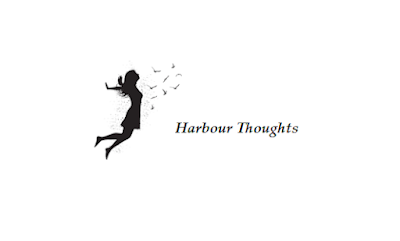The Downtrodden Shoulder Freedom
By Sabar Anantaguna
we the downtrodden shoulder freedom
without rank, nameless
we've kept our country from becoming a prison
we possess nothing
but ninety million burning hearts
do not try to keep us still
fear lies buried under barren hills
we possess nothing
but burning hearts that seek no reward
we guard the islands that kiss the beloved sea
we fight for wages and land of freedom
we possess nothing
but burning hearts roughened by suffering
that may turn into lava, fire and thunder
destroying foes, grinding them to dust
we the downtrodden shoulder freedom
without rank, nameless
we've kept our country from becoming a prison
Source: Contemporary Progressive Indonesian Poetry, 1962
Poem Analysis:
Sabar Anantaguna’s poem The Downtrodden Shoulder Freedom is a powerful and evocative expression of the struggles and resilience of the oppressed. Through poignant imagery and repetition, the poem captures the essence of collective strength and the indomitable spirit of those who fight for freedom, despite the challenges they face.
Theme of Collective Struggle
The poem begins with the declaration, “we the downtrodden shoulder freedom,” immediately establishing a sense of unity among those who have been marginalized and oppressed. The use of the collective pronoun “we” emphasizes solidarity, suggesting that the fight for freedom is a shared endeavor among the downtrodden. This theme of collective struggle is further reinforced by the phrase “without rank, nameless,” which highlights the anonymity of those who fight for liberation. They are not celebrated heroes but ordinary individuals who embody the spirit of resistance.
The repetition of the phrase “we possess nothing” serves to underscore the dire circumstances faced by the downtrodden. Despite their lack of material wealth, they possess “ninety million burning hearts,” a metaphor for passion, resilience, and an unwavering desire for freedom. This contrast between material poverty and the richness of spirit reinforces the idea that true strength comes from within, suggesting that the downtrodden are not defined by their possessions but by their collective determination to fight for their rights.
Imagery of Resistance and Resilience
Anantaguna employs vivid imagery throughout the poem to evoke the emotions and struggles of the downtrodden. The phrase “burning hearts” symbolizes the fervent desire for freedom and justice that resides within the oppressed. This imagery conveys a sense of urgency and intensity, suggesting that their longing for liberation is akin to a fire that cannot be extinguished. The poem also juxtaposes “burning hearts” with “barren hills,” indicating that the struggle for freedom exists even in desolate and challenging circumstances.
The line “we guard the islands that kiss the beloved sea” introduces a sense of place and belonging. The islands represent not only the physical land but also the cultural and emotional ties that bind the downtrodden to their homeland. This connection is crucial in their fight for freedom, as it signifies their commitment to protecting their identity and heritage. The imagery of the “beloved sea” evokes a sense of beauty and yearning, suggesting that the downtrodden’s fight is not only for material gains but also for the preservation of their way of life.
The Power of Emotion
The emotional weight of the poem is palpable, particularly in the lines that describe the downtrodden's suffering: “burning hearts roughened by suffering / that may turn into lava, fire and thunder.” This powerful imagery suggests that the pain and struggles faced by the oppressed can lead to explosive resistance against their oppressors. The transformation of suffering into “lava, fire and thunder” signifies the potential for a revolutionary awakening, indicating that the downtrodden’s anguish could manifest as a formidable force capable of challenging and dismantling oppressive systems.
The final lines of the poem reinforce the theme of collective empowerment, as the downtrodden are portrayed as guardians of freedom: “we’ve kept our country from becoming a prison.” This declaration underscores their role as defenders of liberty, suggesting that without their resistance, their homeland could easily become a place of oppression. The metaphor of a “prison” emphasizes the consequences of inaction, reminding readers of the importance of vigilance in the face of tyranny.
A Call to Action
The Downtrodden Shoulder Freedom by Sabar Anantaguna serves as a poignant reminder of the resilience and strength of the oppressed. Through powerful imagery and a strong sense of collective identity, the poem articulates the struggles faced by those who fight for liberation. Anantaguna's emphasis on emotional and spiritual wealth over material possessions challenges conventional notions of power and success, instead highlighting the importance of unity and determination in the fight for freedom.
Ultimately, the poem is a call to action, urging individuals to recognize their agency in the struggle for justice and equality. It resonates as a timeless reminder that even in the face of adversity, the human spirit can rise and demand freedom, making it a significant contribution to the discourse on social justice and human rights. The downtrodden, as depicted in the poem, become not just passive victims but active participants in shaping their destiny, inspiring readers to reflect on their roles in the pursuit of freedom and justice.
